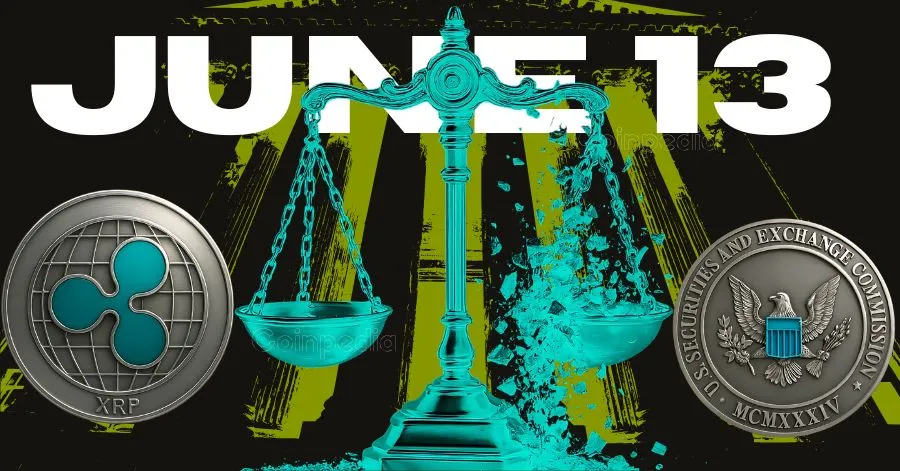
While much of the crypto world stays focused on Ripple’s high-profile legal battle with the SEC, the company has been making moves behind the scenes — and it’s not just about payments anymore.
In its newly released 2024 Ripple Impact Report, Ripple revealed how it’s quietly expanding into humanitarian aid, financial services for the unbanked, and real-world blockchain pilots that could reshape how emergency funds and small businesses operate worldwide.
Ripple Impact, now in its eighth year, has already deployed $200 million towards social good initiatives. In 2024 alone, the company broadened its focus through its Impact Finance strategy, backing projects that use blockchain technology, especially the XRP Ledger (XRPL) — to tackle financial exclusion and deliver aid more efficiently.
Among its standout initiatives is a partnership with Mercy Corps Ventures and DIVA Donate in Kenya. Together, they launched a pilot program using Ripple’s new stablecoin, Ripple USD (RLUSD), to deliver emergency funds automatically based on satellite data.
If dry conditions threaten farmers’ livelihoods, RLUSD donations held in smart contract-based escrow are instantly released. Early results are promising, with a 75% reduction in transaction costs and 90% faster fund delivery compared to traditional aid systems.
Launched in December 2024, RLUSD is Ripple’s enterprise-grade stablecoin issued on both the XRP Ledger and Ethereum. While many stablecoins are designed for trading and DeFi, Ripple built RLUSD with financial inclusion, philanthropy, and humanitarian aid delivery in mind.
The company plans to use RLUSD for cross-border cash aid programs and other financial services in underserved regions — showing the world how stablecoins can offer life-saving solutions beyond crypto speculation.
Ripple’s commitment also extends to helping small businesses and farmers through its long-standing partnership with Mercy Corps Ventures. In 2024, the initiative funded eight early-stage fintech startups and launched seven blockchain pilots.
One such pilot uses the XRPL blockchain to track agricultural products from farm to market for smallholder farmers in Colombia and Spain. This program not only improves food supply chain transparency but also gives farmers access to farm supplies through a “Farm Now, Pay Later” model, boosting their incomes and financial security.
Ripple has also partnered with UC Berkeley’s Lab for Inclusive FinTech (LIFT) since 2020. This initiative supports research projects exploring how blockchain can reach the 1.4 billion unbanked people globally. So far, it has funded 25 projects in 14 countries, connecting researchers, businesses, and policymakers to build practical, ethical blockchain solutions for those without traditional banking access.
RLUSD is Ripple’s USD-pegged stablecoin designed to deliver humanitarian aid and promote financial inclusion in underserved regions.
RLUSD enables faster, cost-effective, and transparent aid distribution, reducing transaction costs by 75% and delivery time by 90%.
Ripple’s Impact Finance strategy has deployed $200 million to fund blockchain projects addressing financial exclusion and aid delivery.
CoinPedia has been delivering accurate and timely cryptocurrency and blockchain updates since 2017. All content is created by our expert panel of analysts and journalists, following strict Editorial Guidelines based on E-E-A-T (Experience, Expertise, Authoritativeness, Trustworthiness). Every article is fact-checked against reputable sources to ensure accuracy, transparency, and reliability. Our review policy guarantees unbiased evaluations when recommending exchanges, platforms, or tools. We strive to provide timely updates about everything crypto & blockchain, right from startups to industry majors.
All opinions and insights shared represent the author's own views on current market conditions. Please do your own research before making investment decisions. Neither the writer nor the publication assumes responsibility for your financial choices.
Sponsored content and affiliate links may appear on our site. Advertisements are marked clearly, and our editorial content remains entirely independent from our ad partners.
Macro headwinds have catalyzed selling behaviour in the last few days, making back-to-back weekend dumps…
XRP is yet again commanding attention because the 2025 bull market intensifies. Trading at $2.37,…
XRP is once again making headlines as traders anticipate a strong breakout in the months…
Binance has announced that it banned more than 600 accounts last week for using unauthorized…
Story Highlights The live price of SUI crypto is . The SUI price is expected…
Story Highlights Solana Price Today is . Solana coin price could reach a potential high…